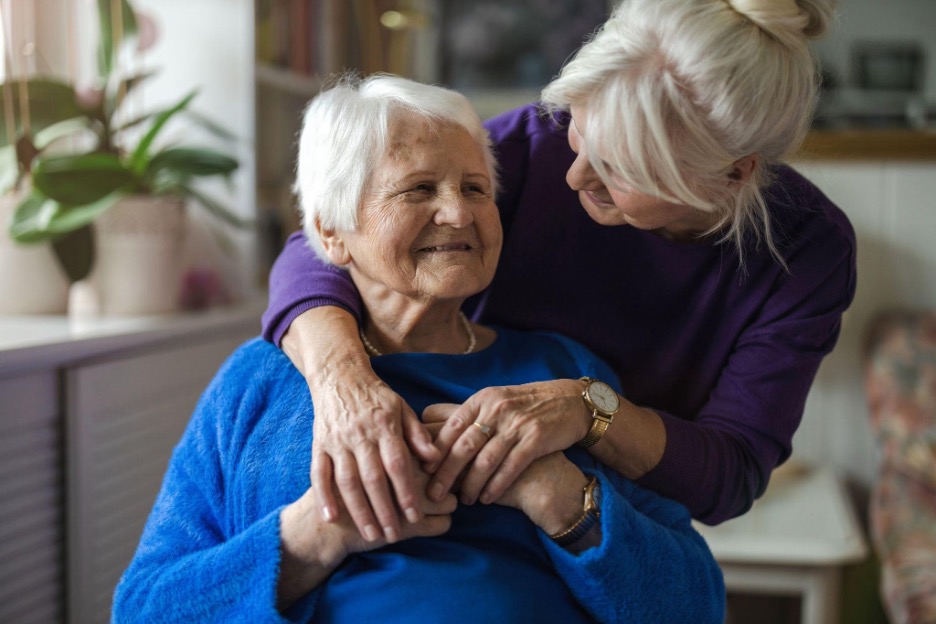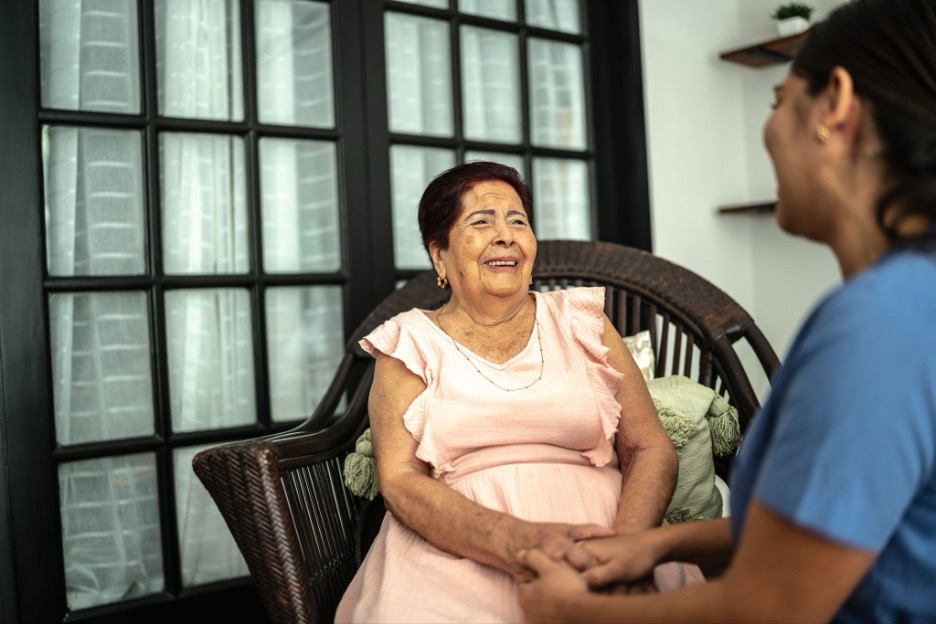Finding the Right Memory Care Community: Expert Advice

Deciding on memory care for a loved one is never easy. You want the absolute best for them, and figuring out where that is can feel overwhelming. Rest assured, there are great communities out there – the key is asking the right questions and knowing what makes a place feel like home.
In my last blog, I focused on ways Cascade Living Group creates joyful experiences for our residents during the holidays and every day in our communities. Here, I want to support you further by sharing expert insights to help you find a memory care community where your loved one will receive exceptional care and thrive throughout retirement.
Key Takeaways:
- Essential Elements: Ensure safety, purposeful activities, access to outdoor spaces, nutritious meals, medical support, family involvement, well-trained staff, well-maintained spaces, and compliance with state regulations.
- Choosing the Right Fit: Evaluate atmosphere, responsiveness, staff ratios, and family involvement. Assess adaptability to changing needs.
- Specialized Training: Trained staff manage behaviors, promote well-being, offer on-site health services, ensure nutrition, and facilitate communication.
Memory Care Communities: Essential Elements
Memory care shouldn’t be a one-size-fits-all approach because dementia affects each person differently. Some may experience changes in personality, while others may have more difficulties with activities of daily living (ADLs).
A high-quality memory care community recognizes these differences. They take the time to understand each resident – their background, likes and dislikes, and current abilities.
This understanding empowers the community to tailor care plans, activities, and even the environment to support each resident’s specific needs, maximizing their comfort, well-being, and sense of purpose.
Here’s what I recommend you take note of on your next tour:
- Safety and Security: This means finding a safe yet comfortable environment to protect residents who may wander or need extra supervision. It’s about creating a space where your loved one feels secure.
- Activities: Programs and activities should be specifically designed for people with memory loss. Think of engaging activities that promote joy and connection, not just keeping residents busy.
- Outdoor Spaces: Safe, secure outdoor spaces encourage walking and gentle movement. This supports physical health, promotes better sleep, and can even boost cognitive function in some individuals.
- Good Food: Food plays an essential role in our well-being. Meals in memory care need to be both delicious and nutritious, with options that meet any dietary restrictions. Food options should also be easy to chew and swallow for residents with dysphagia.
- Medical Support: Easy access to doctors, nurses, and other healthcare professionals is a big plus. It can bring peace of mind knowing help is close by.
- Family Involvement: They should keep you involved and updated with open communication. You’re still an important part of the care team!
- Trained Staff: It’s crucial that the entire team understands the unique challenges of dementia and is specifically trained to provide compassionate, specialized care.
- Well-Maintained Spaces: From outside spaces and shared social areas to individual residences and dining areas, every corner of a memory care community should be in working order and well maintained.
- Meets or Exceeds State Regulations: The community should meet all the important state regulations to ensure your loved one will be given quality care and to provide you with peace of mind.
Beyond the Basics: Finding the Right Fit for Your Loved One
Choosing the right memory care community involves asking the right questions. The more informed you are, the better equipped you’ll be to advocate for your loved one’s needs and find a community where they’ll thrive.
This is a starting point to help you gather the most important information:
- Welcoming Environment: Does the atmosphere feel warm and inviting? Could you picture your loved one settling in comfortably?
- Responding to Needs: How do they handle changes in a resident’s mood, behavior, or cognition with respect and compassion? How do they provide person-centered care?
- Staff Ratios: Ask about the day, evening, and overnight ratio. Understand how it might change based on the level of care your loved one may need.
- Consistency: Will your loved one have a small group of caregivers they get to know, or is the staff rotation very frequent?
- Family Involvement: Do they offer scheduled meetings for care plan updates or have a system for informal communication (phone, email, a designated app)? Can family members participate in activities?
- Adaptability: Do they have varying levels of care within the facility to avoid disruptive moves? Can they manage increased care needs due to other health problems?
“At the end of the day, it’s about connecting with the person, not just their diagnosis. How do staff get to know each resident and provide care that’s tailored just for them?”
Debbie Walker
The Importance of Specialized Training
While every healthcare professional is essential, not all are experts in memory loss. The ideal community has a team trained to understand how dementia impacts behavior, communication, and overall needs.
Here’s why specialized training makes a difference:
- Managing Challenging Behaviors: Dementia can sometimes lead to agitation, confusion or withdrawal. Specially trained staff understand the root causes of these behaviors and have compassionate, non-pharmacological techniques to help residents feel calm and safe.
- Promoting Well-Being: Specialized training extends beyond medical care. It guides staff in creating activities and interactions that support residents’ remaining cognitive abilities and provide a sense of purpose.
- On-Site Health Services: Look for a community with on-site health services like physical therapy, checkups, lab services, mobile X-rays, and podiatry. This minimizes the disruption and stress of outside appointments for your loved one.
- Nutrition and Hydration: Training helps staff understand how dementia can impact appetite, swallowing difficulties, food preferences, and the ability to understand the importance of eating and drinking.
- Effective Communication: As dementia progresses, communication can become difficult. Training helps caregivers understand each resident’s needs even when they struggle to express them verbally.
“Communication in dementia care is an art form. Specialized staff are trained to listen beyond words, interpreting behaviors and finding ways to connect meaningfully with each resident.”
Debbie Walker

The Assessment: What To Expect
Before moving in, the community will do a comprehensive assessment. This isn’t just a formality; it’s a crucial step to ensure they can provide the right level of care and support for your loved one.
Here’s what a thorough assessment usually covers:
- Medical History and Current Health: The team will review medical records, current medications, and any chronic health conditions. They may perform a basic physical exam, check vital signs, and assess mobility.
- Cognitive Function: They’ll evaluate memory, thinking skills, problem-solving ability, language, and overall judgment through questions, tasks and observation.
- Activities of Daily Living (ADLs): The assessment will determine which ADLs your loved one needs assistance with, such as bathing, dressing, eating, using the restroom, and getting around safely.
- Behavioral Considerations: They’ll inquire about any specific dementia-related behaviors like wandering, agitation, sleep disturbances, or personality changes. This helps the staff proactively create a safe and supportive environment.
- Social and Emotional Needs: A good assessment looks beyond the physical and cognitive, exploring your loved one’s interests, preferences, social needs, and emotional concerns.
“The results of the assessment directly inform the development of a personalized care plan that matches your loved one’s specific strengths, needs and preferences. It’s an opportunity to ask questions about the community, discuss any concerns you have, and build a relationship with the care team.”
Debbie Walker
Pricing Structures and Amenities: Costs and What They Cover
Pricing structures and amenities vary greatly among memory care communities. Understanding these variations is key to finding the best fit for your loved one’s needs and your budget. Here’s what to consider:
- Base Costs: Get a detailed breakdown of the monthly fee. This usually covers a residence, meals, and basic care services (assistance with ADLs).
- Tiered Pricing: Many communities offer tiered care packages based on the level of assistance your loved one needs. Higher levels of care will naturally come with higher costs.
- Additional Fees: Inquire about any extra fees for services like laundry, incontinence care, specialized therapies, or transportation.
- Amenities and Services: Find out what’s included in the base cost. Some communities have more robust on-site amenities like salons/barbershops, fitness centers, and regular community outings. These influence the overall price.
Financial assistance can help offset the cost of memory care. Explore various options, including Medicaid programs in your state, possible coverage through long-term care insurance, and Veterans benefits, if applicable.
A Word From Debbie
“I’ve been a nurse for more than 35 years, mostly focused on seniors. In this field, I always say the smallest things, like a gentle touch, often mean the most. Your gut feeling about a place matters as much as the checklist. If it feels like home, and they provide the care your loved one deserves, you’re on the right track.”
Discover Compassionate Memory Care at Cascade Senior Living Group
We’re ready to answer your questions, guide your journey, and provide the personalized care your loved one deserves. Contact us to schedule a visit and experience the warmth of a Cascade Senior Living Group memory care community near you.


